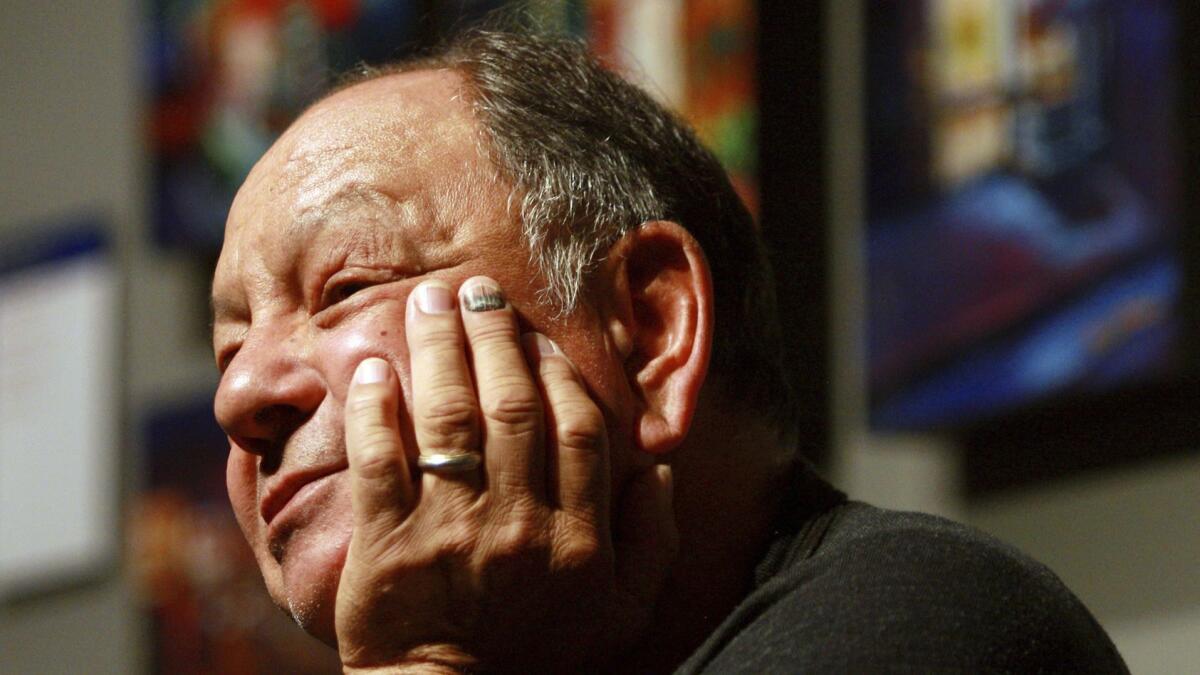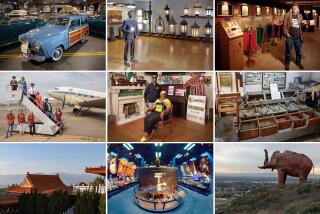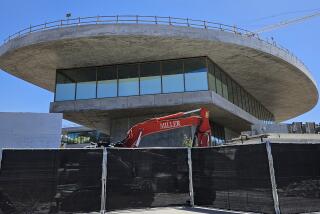Cheech Marin’s Chicano art museum given $9.7 million from state of California

- Share via
Just months after California legalized recreational marijuana the state is giving stoner comedian Cheech Marin’s Chicano art museum $9.7 million.
It must be kismet.
The money was rolled up in the $139-billion California budget for 2018-19 that Gov. Jerry Brown signed Wednesday.
The Cheech Marin Center for Chicano Art, Culture and Industry is scheduled to open in 2020 in Riverside, east of Los Angeles.
“The Cheech,” as Marin prefers to call it, will include approximately 700 paintings, drawings, sculptures and other works he’s collected over more than 30 years.
Among them are works by such internationally acclaimed Chicano artists as Gilbert “Magú” Lujan, Frank Romero and Carlos Almaraz.
“I have dreamed for many years of finding a home for the hundreds of pieces of art that I have spent much of my life collecting, protecting and showing, when possible, at major museums around the world,” Marin said Wednesday. “The Riverside community has made this dream a reality.”
Marin and the Riverside Art Museum had already raised approximately $3 million since plans for the museum were unveiled last year.
It will be located in a refurbished building next door to Riverside’s historic Mission Inn, a stopping point since it opened in the 1870s for numerous celebrities and presidents, including Theodore Roosevelt, Richard Nixon and George W. Bush.
Marin, a lifelong art lover, began collecting soon after he and cannabis comedy partner Tommy Chong became famous in the 1970s.
He’s said over the years he focused on Chicano art not so much because he’s a Chicano but because of how brilliant he found the artists to be and how, in the early years, so few people were aware of their work.
That began to change as Marin, 71, persuaded museums across the country to stage exhibitions. After one at the Riverside Art Museum last year drew more than double its normal attendance, officials approached him about permanently housing his collection there.
More to Read
The biggest entertainment stories
Get our big stories about Hollywood, film, television, music, arts, culture and more right in your inbox as soon as they publish.
You may occasionally receive promotional content from the Los Angeles Times.










